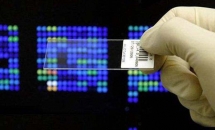One of the great challenges for science in this century is to understand how the brain works. For centuries, philosophical and religious influences suggested that consciousness, memory, behaviour and mental functions were all disconnected from the brain. Nowadays, almost everyone accepts that love and emotions do not come from the heart, given that it is simply a muscle for pumping blood. Even so, the idea that the mind and spirituality originate in a physical organ such as the brain is a relatively new concept that still concerns some people. They do not understand the brain as a computational organ responsible for processing information, and that it is extraordinarily complex owing to the vast number and variety of cells that it has, and the interactions between them. This concept does not trivialise the mystery of the human mind, instead, from the biological point of view it increases our respect for its power and complexity. Unexpected models, such as the extirpation of the hippocampus to treat epilepsy, neuropsychological studies and, more recently, genetic and pharmacological models, have all helped us to begin to understand the brain as the basis for complex mental functions. Specific cerebral regions, neuronal circuits and synaptic receptors are not only involved in the motor function and in the primary senses (such as vision and touch), they also make us aware of ourselves and our environment, they are the basis for memory, they change our behaviour and, in short, they make us human. A few years ago we discovered a group of diseases in which sufferers produced auto-antibodies against several different synaptic receptors, they changed their levels and the synaptic function, and disrupted the mechanisms of neuronal plasticity. The action of the antibodies causes profound alterations in behaviour, memory, psychosis and regression of the personality, among other symptoms that lie at the intersection between neurology and psychiatry.
Hyper-spirituality or perhaps suspicion of demoniac possession are manifestations of these antibodies in some sufferers. The cause of the emergence of the antibodies seems to be a mechanism of molecular mimicry in which a systemic tumour, far from the brain, or perhaps a microbial infection originate an immunological response that is wrongly directed against neuronal receptors. The elimination of the antibodies cures the sufferers, but their triggering has provided us with a natural model and a molecular tool to understand a little better how the brain works.
Cycle: Challenges of the 21St Century the Voice of Medicine, II
Organized by: Residence for Researchers, Fundació Clínic Barcelona, IDIBAPS and RESA
